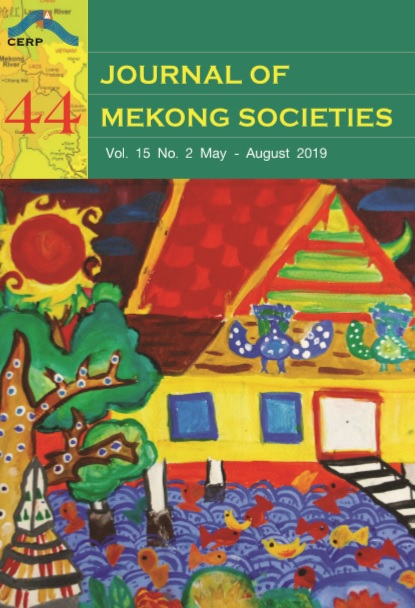Is the Copula /pen/ in Thai Meaningless?
Main Article Content
Abstract
When speaking of the semantic qualities of the copula in various languages, one would find that the copula does not have any intrinsic meaning. In the case of the Thai language, Uppakitsinlapasan, a well-known traditional grammarian, has also claimed that the copula in Thai is a semantically empty verb that relies on the semantic content of the linguistic unit succeeding it in the predicate to form a complete sentence. The main objective of this study is to test these claims pertaining to the semantic emptiness of the copula /pen/ in Thai by investigating the behavior of /pen/ in various contexts. This will determine the types of occurrences one sees, as well as if /pen/ has any inherent/implicit meaning in the various contexts; if there is, the intent is to elucidate those meanings. This research is based on a total of 1,200 samples of data obtained from the Thai National Corpus (TNC). This study found that the copula /pen/ in Thai can be both the main verb of a sentence and the last verb of a multi-verb construction. The linguistic element preceding /pen/ is usually a noun phrase, while the linguistic element succeeding /pen/ is variable in that it can be a noun phrase, an adjective phrase or a prepositional phrase. The semantic analysis of /pen/ has uncovered three different implicit meanings of /pen/: ‘belonging to a group,’ ‘having the attribute (of)’ and ‘to be in one’s possession.’ The linguistic elements in the pre-copula and post-copula positions are related by a ‘one of all’ meaning, which is a unique characteristic of the copula /pen/ in Thai.

